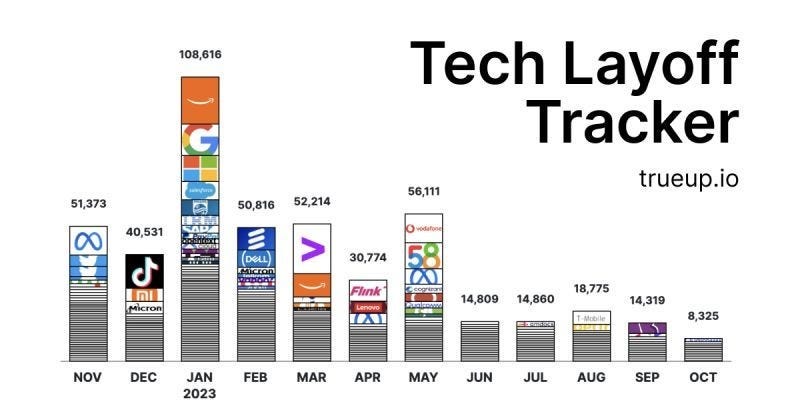Want Your First PM Job? Stop Sending Out Your Resume. Do This Instead!
If you’re not getting callbacks, it’s not just your resume — it’s your approach!
Breaking into product management is tough, but what’s even tougher is watching smart, ambitious people make the same mistakes over and over again — mistakes that hold them back from landing their first PM role.
I see it all the time: people polishing their resumes endlessly, sending out hundreds of applications, or sinking money into fancy certificates — only to be stuck in the same place months later. It doesn’t have to be this way

Breaking into Product Management doesn’t have to be painful. Let me help you. ❤️
In fact, there are three heart-wrenching mistakes I see people make all the time…
👉 Mistake #1: Shot-Gunning Resumes (Resume Farming) and Burning Job Leads
👉 Mistake #2: Going on Interview Roadshows Instead of Networking
👉 Mistake #3: Paying for Overpriced Certificates (No Hiring Manager Cares)
If you’re serious about breaking into Product Management, avoid these three costly mistakes and take a smarter approach.
In this post, I’ll discuss Mistake #1: Shot-Gunning Resumes and Burning Job Leads, I’ll go into detail about #2 & #3 in future posts.
Let’s dive deep! 🥽
Why Your Resume Isn’t the Game-Changer You Think It Is
The job market is brutal right now, especially for product managers. Companies are tightening budgets, and experienced PMs laid off are now applying for individual contributor (IC) roles. This means:
✅ More senior competition. If a company gets 200+ applicants for a PM role, they’ll prioritize candidates with the most experience.
✅ Applicant tracking systems (ATS) filter you out. Many resumes don’t even make it to a human reviewer because they get filtered out by software looking for specific keywords.
✅ Market conditions are shifting. Fewer companies are hiring for senior roles like Head of Product or Director of Product, meaning more experienced PMs are applying for mid-level roles — pushing mid-level PMs to take entry-level PMs roles.

Actual screenshot from one of my hiring days: 271 people are rejected by the ATS for top roles
This is why spending weeks perfecting your resume is a waste of time. Instead, you need a job strategy that adapts to the market.
So, what should you do instead? Shift your focus from resume polishing to positioning yourself strategically in the market.
Step 1: Understand the Market Dynamics 📈
Before you start applying for product management jobs, you need to understand the bigger picture — because the job market isn’t what it was a few years ago. If you ignore market trends, you’ll compete in the wrong places, get rejected, and feel stuck.
The Market Shift: Senior PMs Are Taking Over Entry-Level Roles
Right now, the product management job market is flooded with experienced PMs from the economic downturn. These professionals — who used to be Heads of Product, Directors, and even VPs — are now applying for Senior PM, Principal PM, and Staff PM roles just to stay in the industry.
Why?
- The number of leadership roles has shrunk — fewer companies are hiring Directors or VPs of Product.
- These experienced PMs prioritize job security over titles — they’d rather take a lower title at a big, stable company than risk a leadership role at an unstable startup.
- Companies prefer hiring experienced PMs over junior candidates — why train a newbie when they can get a former Director as a Senior PM? (My situation 😅)
This is the reality of the job market. And let’s be real — if a company gets two applicants, one with 5+ years of experience and another with zero PM experience, guess who they’re picking?

Credit to: https://www.linkedin.com/pulse/2024-tech-layoffs-pain-poverty-industry-usa-ivan-piskunov-jr6de/
Step #2 — Adjust Your Strategy to Fight Back 🥊
Instead of fighting a losing battle, you need to go where senior PMs don’t want to go:
🤜 Punch #1: Smaller startups and early-stage companies — Senior PMs often avoid early-stage startups because they want job security. Many startups struggle to find PMs because senior candidates don’t want the uncertainty of working at a company that might not survive.
🤜 Punch #2: PM roles within a Specific Industry — Some industries (like Healthtech, Fintech, and B2B SaaS) require niche knowledge. Having relevant experience, even if it’s not strictly in PM, gives you an edge over general PM candidates.
🤜 Punch #3 Non-traditional PM roles — Titles like Product Analyst, Program Manager, or Growth PM can be stepping stones into product management. Many PMs today started in adjacent roles before transitioning into full PM positions.
“Play where you can win. Avoid games where the odds are stacked against you.” — Naval
🔹 Instead of applying for generic PM roles at big tech companies, look for startups that need a PM but can’t attract senior talent.
🔹 Instead of competing with experienced PMs, target entry-level and niche PM roles where senior candidates won’t apply.
🔹 Instead of focusing only on salary, prioritize getting the title and hands-on experience first. You can negotiate a higher salary once you have PM experience.
Step #3 — Use Side Projects to Show High Agency
Experienced product leaders aren’t naive — they can tell when you’re new to the game. But being a junior PM comes with advantages seniors don’t have: you’re eager to hustle, willing to do the grunt work, and ready to learn.
Here’s the reality: most junior PM roles aren’t filled through job postings. Hiring managers first turn to their network for referrals, especially in high-volume roles like Junior PM.
That means when an opportunity opens up, you need to be at the top of your mind — not just for the hiring manager but also within the broader product community.
The best way to do this is to build a side business and use it to network with PMs at industry events. This will position you as someone with initiative and high agency, making it more likely that PMs will refer you when a junior role becomes available.
And when you do get that referral, your side business should be on your resume — highlighting real revenue and the steps you took to grow it.

I often receive and give referrals for Junior PMs via LinkedIn
Instead of mass-applying to hundreds of jobs and hoping for the best, focus on your time on high-value things like:
✅ Networking via Meetups and LinkedIn. The best PM jobs aren’t listed — they’re filled through connections. Get out of your chair and go speak with PMs.
✅ Startup events and hackathons. Build your side business and meet Founders who might hire you. Two birds, one stone.
✅ Side projects and real experience. Leverage your hustle. Make sure the right people know about it. That’s how you land your first PM job.
Bottom Line: Play the Long Game
If you’ve been stuck in the endless loop of tweaking your resume, sending out dozens of applications, and hearing nothing back, it’s time to change your approach.
Your resume is just a brochure — a summary of what you bring. But hiring happens through strategy, positioning, and networking.
So, instead of tweaking your resume for the 100th time, ask yourself:
✅ Am I targeting the right companies and roles?
✅ Am I leveraging the fact that startups need PMs but struggle to find them?
✅ Am I putting myself in places where hiring managers look for talent?
If the answer is no, your resume isn’t the problem — your strategy is. Your plan strategically positions yourself in the market and competes against the crowd.
Wait, You Haven’t Subscribed? You should!
I’ve made it my goal in the next 10 years to help 2,000 people break into Product Management. I’ve spent the last 5 years doing just that — teaching thousands, mentoring aspiring PMs, and sharing practical, no-fluff advice that actually works.
Check out here: https://www.productacademy.io/
I’ve been in the hiring room, built product teams, and created frameworks used by top tech companies.

This is one of the big mistakes people make when breaking into products. The following two mistakes? They’re just as standard — and just as costly.
👉 Mistake #2: Relying on job boards instead of networking.
👉 Mistake #3: Thinking you need a certificate or MBA to get hired.
I’ll dive into both of these in the next posts — Subscribe to me for next week’s newsletter! 🚀
Breaking into Product Management doesn’t have to be painful. Let me help you. ❤️







Responses